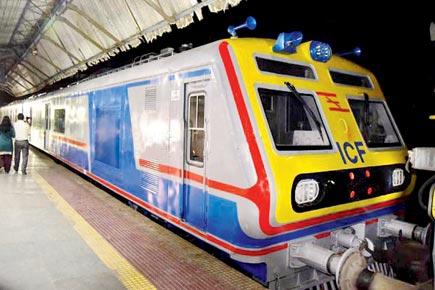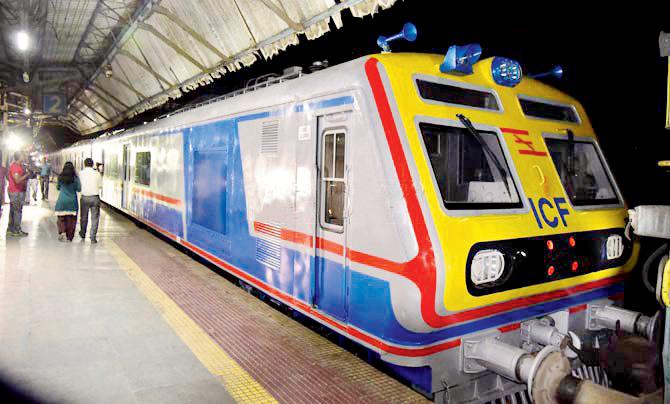Even after being aware that Mumbai's first AC local has been a troublesome affair, the railways is all set to invite tenders for the next lot of 47 AC rakes having 12 coaches each


City's first AC local train, which is on trial, has been encountering a lot of technical glitches. File Pic
ADVERTISEMENT
Even after being aware that Mumbai's first AC local has been a troublesome affair, the railways is all set to invite tenders for the next lot of 47 AC rakes having 12 coaches each.
Also read - Mumbai railway commuters' cool local ride is stuck near a cave-in
The Indian Railways has decided to convert all trains procured under the Mumbai Urban Transport Project III into AC ones, even though Railway Minister Suresh Prabhu agrees that the AC train under trial has been facing unexpected technical glitches and that there were flaws in its manufacturing.
Cost-(un)wise
According to the previous calculations, the cost of procuring rolling stocks for non-AC local trains, including 564 coaches, was estimated to be Rs 2,899 crore. If there were 12 coaches in each rake, the total number would be 47 and the cost of a single rake would be Rs 61 crore.
Also read: Mumbai will have to wait until 2025 to get next AC local
But with the AC rakes being approved, senior officials expect the cost to increase by at least Rs 20 crore per rake.
What the railways says
"We plan to procure AC coaches with automatic doors, which will increase the total cost by around 33 per cent," said a railway official on condition of anonymity. Hence, the total cost would go up by another R940 crore.
Also read: Why Western Railway may end up getting Mumbai's first AC local
But if the railways decides to get better versions of the AC rakes, like those of the Metro rail, the cost of procuring each rake would not be less that Rs 100 crore.
Also read: Mumbai's first AC train too tall for British-era bridges
An official further said that the Railway Board was working on the specifications of the AC local trains, which would be out in the next two months. Only after that the railways would call for the tenders.
 Subscribe today by clicking the link and stay updated with the latest news!" Click here!
Subscribe today by clicking the link and stay updated with the latest news!" Click here!






